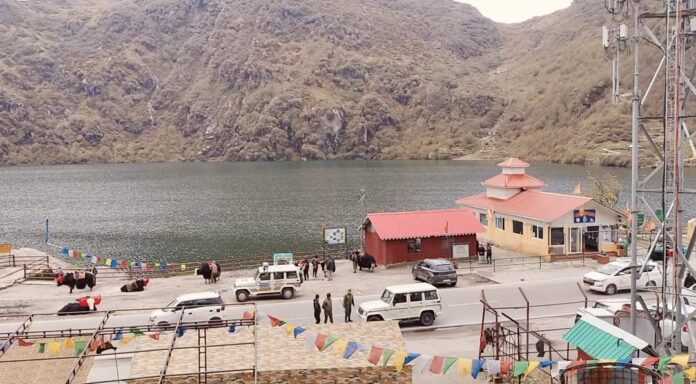Sikkim: When you hear the name Sikkim, this jewel of a state in India’s northeastern region, your mind likely conjures images of the snow-capped Kanchenjunga, winding mountain rivers, and the serene chants of Lamas. But have you ever paused to consider the origin and meaning of this name? Where did “Sikkim” come from, and what history does it carry?
Today, we’re diving into the fascinating etymology of “Sikkim” and the intriguing history woven into its very name.
Where Did the Word “Sikkim” Come From?
The word “Sikkim” has its roots in the Tibetan language. It’s formed from the combination of two Tibetan words: “su” (meaning “new”) and “khyim” (meaning “house” or “palace”). Together, they form “Sukhim” or “Sikim,” literally translating to “new palace.”
Many historians believe that this name originated in the 17th century. When Phuntsog Namgyal, the first Chogyal (king), began his reign in the region, he established a new capital. It’s thought that this new royal palace gave the area its name, “Sikkim.”
Sikkim Through the Eyes of Its Local People
Beyond the Tibetan explanation, various ethnic groups in Sikkim have their own interpretations and names for the region. For instance:
The Lepchas refer to this land as “Nye-mae-el,” which beautifully translates to “blessed land.”
The Nepali people use the term “Sukhim,” which is essentially a localized adaptation of the original Tibetan word.
These diverse interpretations reveal that Sikkim is more than just a geographical designation; it’s a profound cultural identity and a bearer of rich historical heritage.
More Than Just a Name: A Glorious History
Sikkim’s history is a vibrant tapestry where royal power, religious influence, and cultural diversity are intertwined. It was once an independent kingdom, later coming under British influence, and finally, after India’s independence, it fully integrated as a state in 1975.
Throughout this entire journey, the name “Sikkim” remained constant, its inherent meaning hinting at a new beginning and a fresh chapter for this enchanting land.








[…] Read More: The Story Behind the Name “Sikkim”: Once Meaning “New Palace” […]